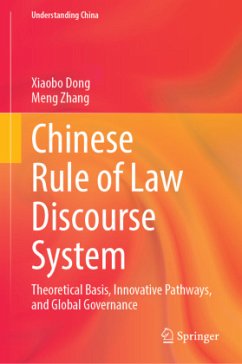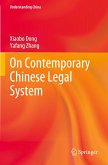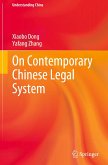This book establishes an innovative interdisciplinary research paradigm for studying China's distinctive legal discourse, systematically elucidating the generative logic and global interaction mechanisms of contemporary Chinese legal narratives. Breaking free from the constraints of legal-centrism, the author creatively integrates legal philosophy, critical discourse analysis, and area studies to construct a three-tiered analytical framework of "civilizational foundations-methodological innovation-practical verification," establishing an autonomous paradigm for Chinese legal discourse research.
The work achieves dual academic breakthroughs: First, it constructs a theoretical framework for analyzing contemporary Chinese legal discourse, providing new cognitive schemata for legal discourse studies and global governance scholarship. Second, it pioneers the introduction of philosophy of technology into legal research, demonstrating how digital technologies reshape China's legal trust mechanisms. At the policy level, it proposes the "Four Principles of Legal Discourse Innovation" and a "Communication Efficacy Enhancement Matrix," offering actionable solutions for building a new-era legal system and participating in global rule-making.
With its theory-practice integrated approach, this book caters to both general readers interested in legal civilization and scholars in international relations, legal studies, and global governance by providing an analytical framework that combines academic depth with policy relevance. It holds particular enlightening value for students in related disciplines.
The work achieves dual academic breakthroughs: First, it constructs a theoretical framework for analyzing contemporary Chinese legal discourse, providing new cognitive schemata for legal discourse studies and global governance scholarship. Second, it pioneers the introduction of philosophy of technology into legal research, demonstrating how digital technologies reshape China's legal trust mechanisms. At the policy level, it proposes the "Four Principles of Legal Discourse Innovation" and a "Communication Efficacy Enhancement Matrix," offering actionable solutions for building a new-era legal system and participating in global rule-making.
With its theory-practice integrated approach, this book caters to both general readers interested in legal civilization and scholars in international relations, legal studies, and global governance by providing an analytical framework that combines academic depth with policy relevance. It holds particular enlightening value for students in related disciplines.








